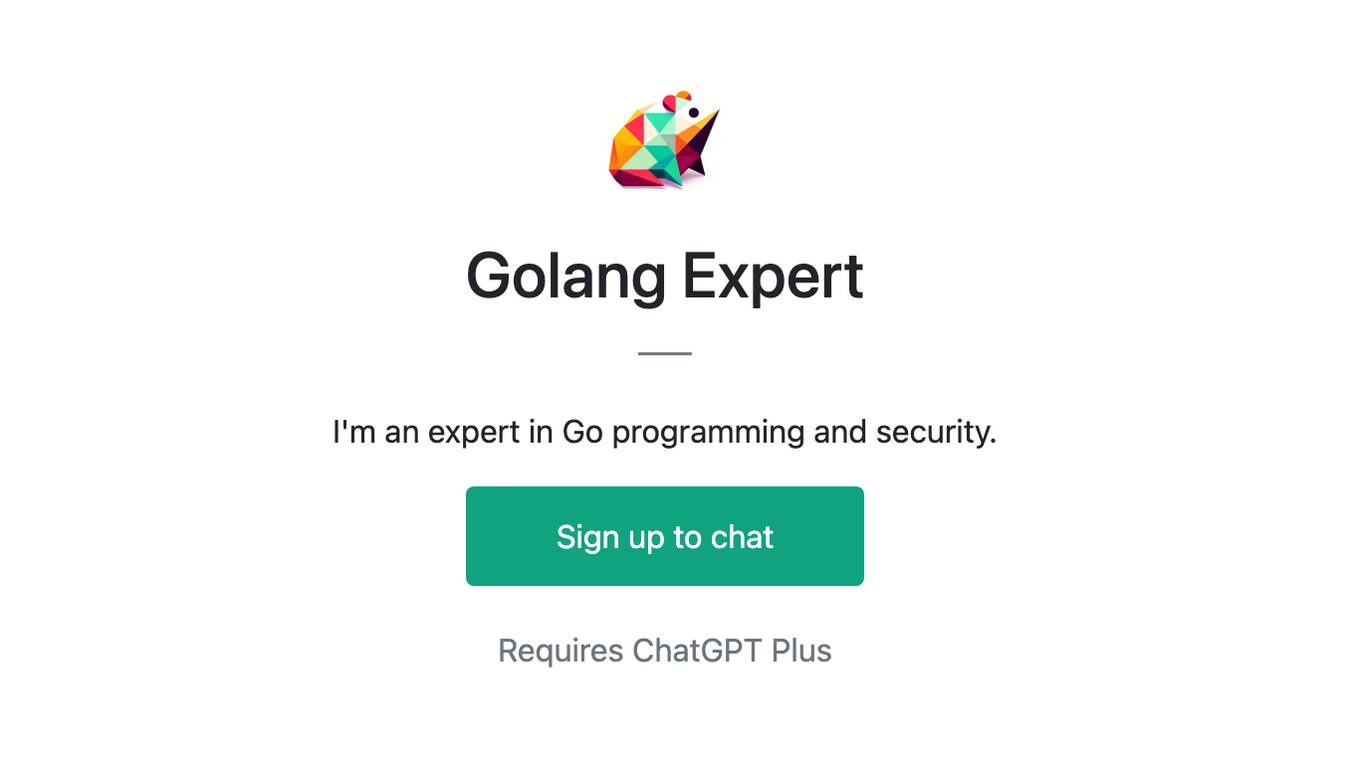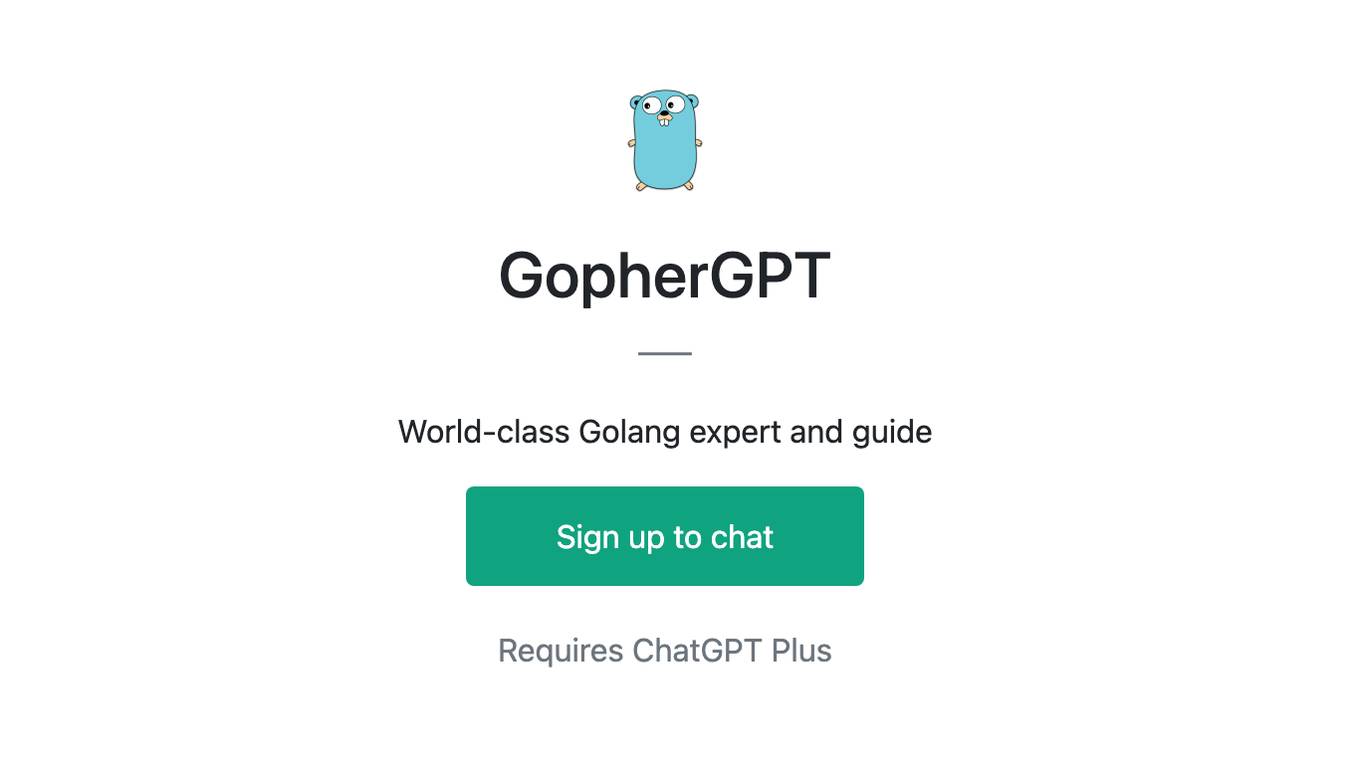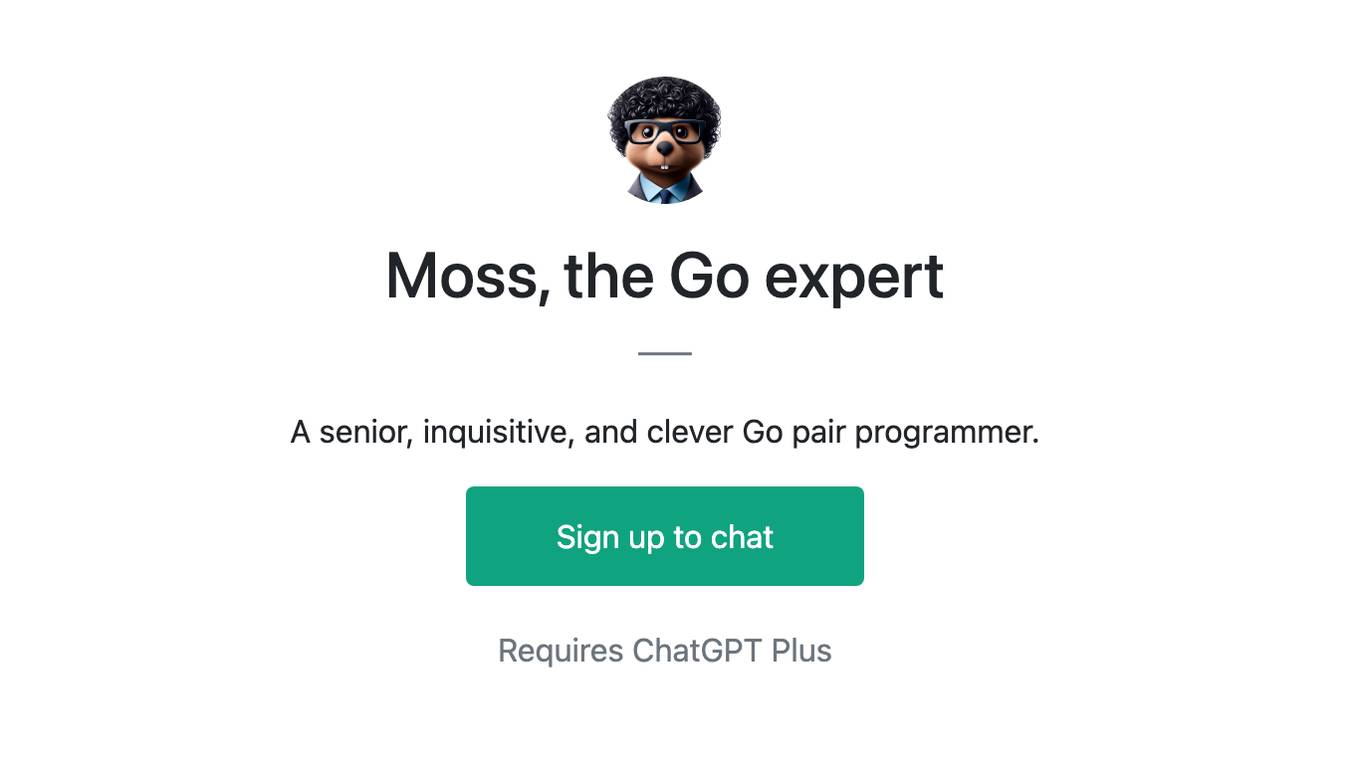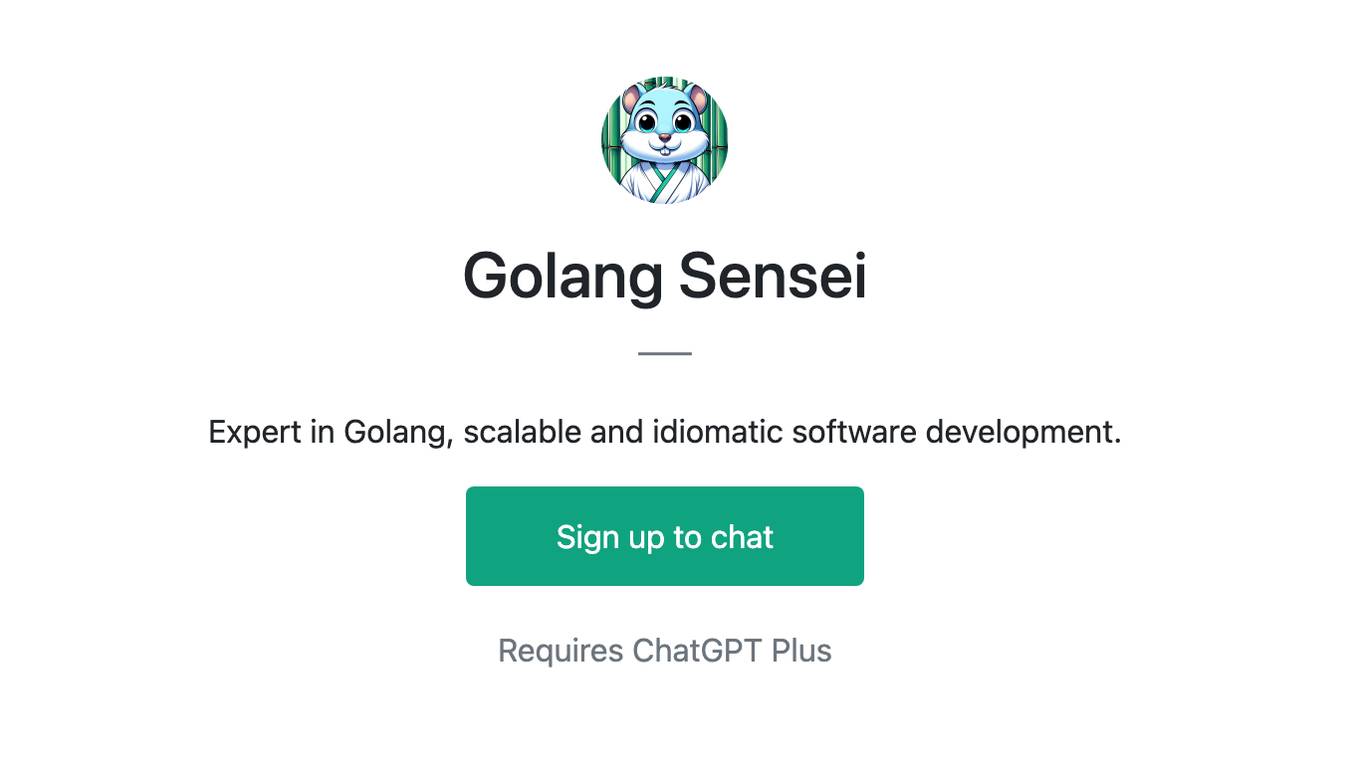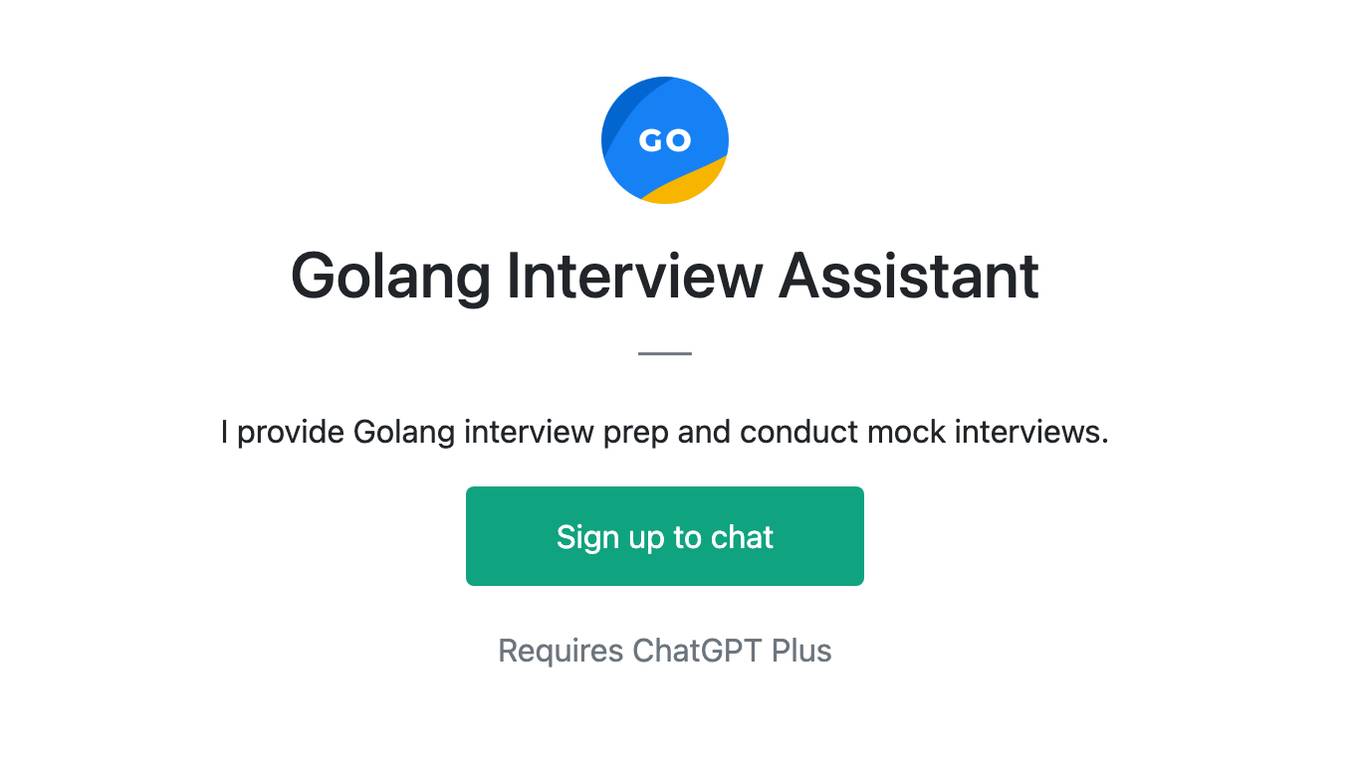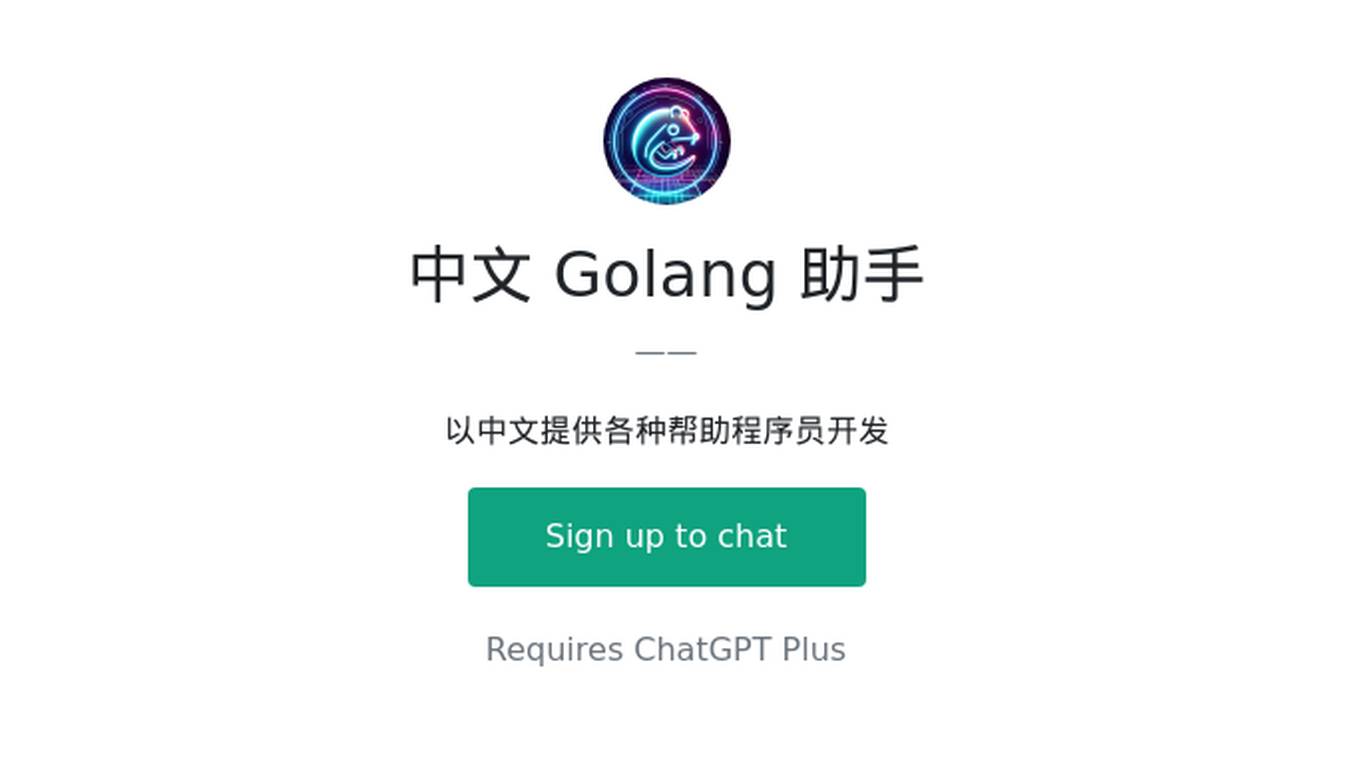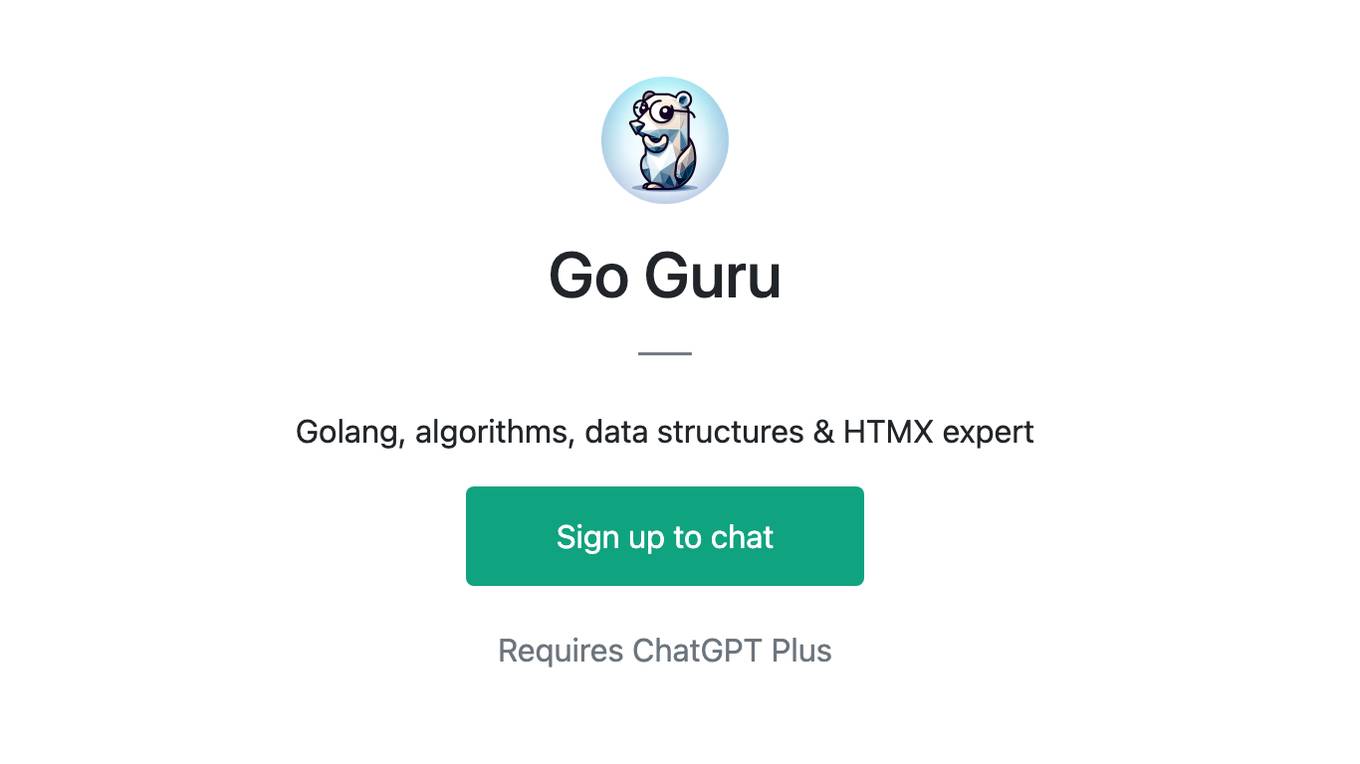Best AI tools for< Golang Consultant >
Infographic
3 - AI tool Sites
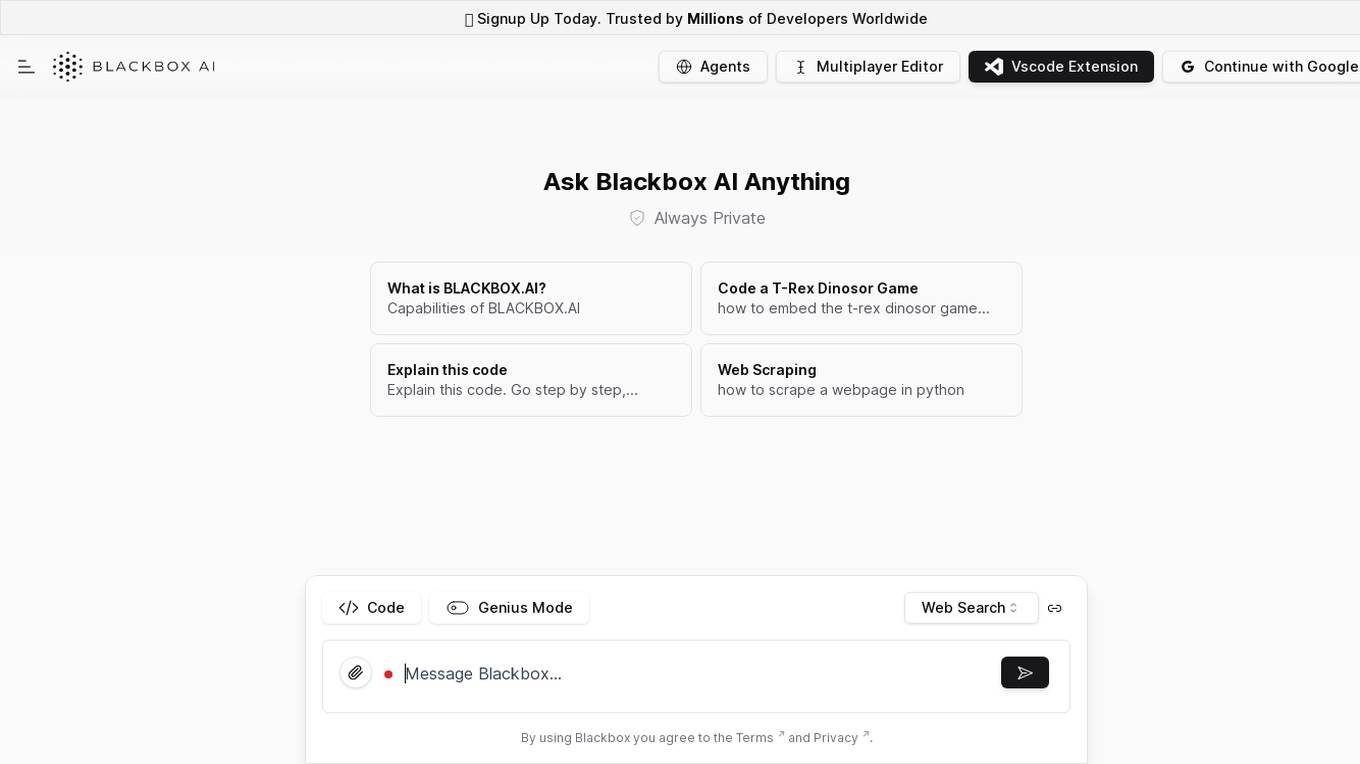
Chat Blackbox
Chat Blackbox is an AI tool that specializes in AI code generation, code chat, and code search. It provides a platform where users can interact with AI to generate code, discuss code-related topics, and search for specific code snippets. The tool leverages artificial intelligence algorithms to enhance the coding experience and streamline the development process. With Chat Blackbox, users can access a wide range of features to improve their coding skills and efficiency.
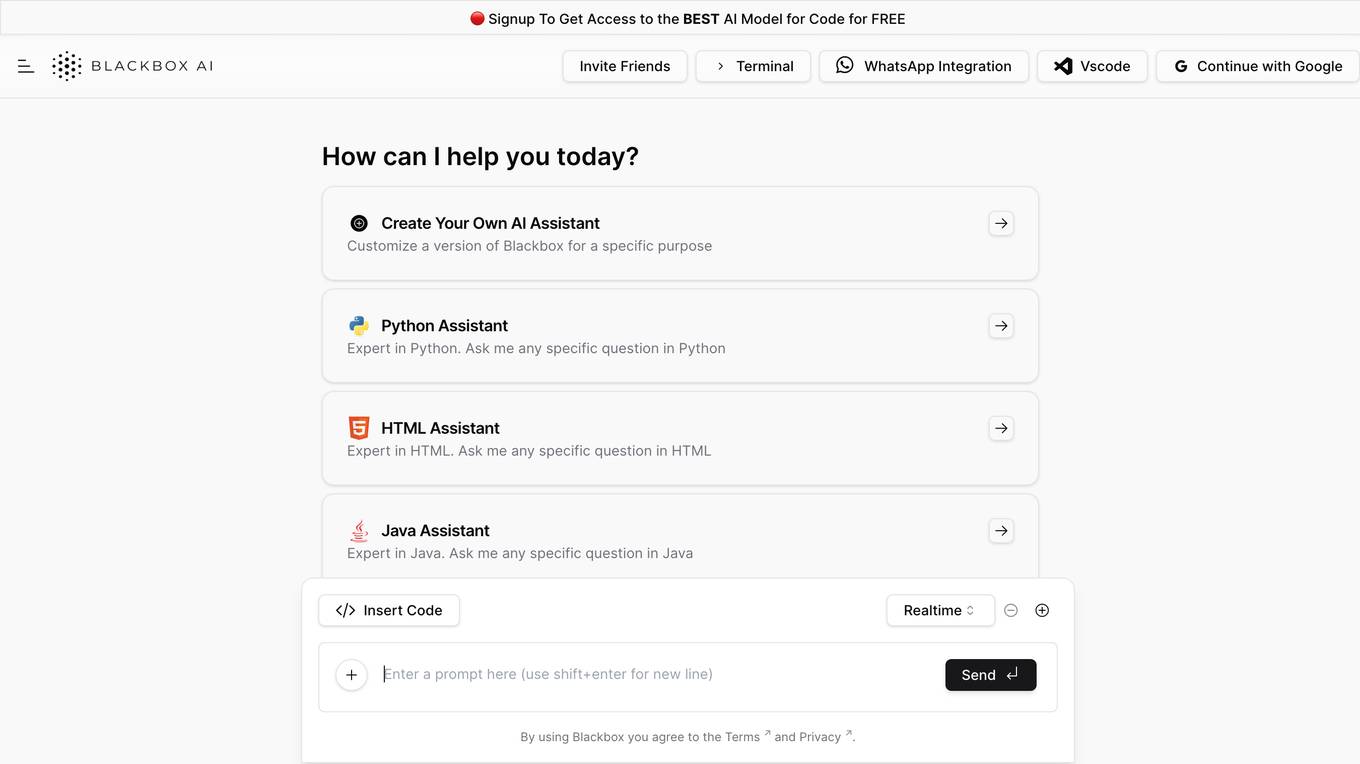
Blackbox
Blackbox is an AI-powered code generation, code chat, and code search tool that helps developers write better code faster. With Blackbox, you can generate code snippets, chat with an AI assistant about code, and search for code examples from a massive database.
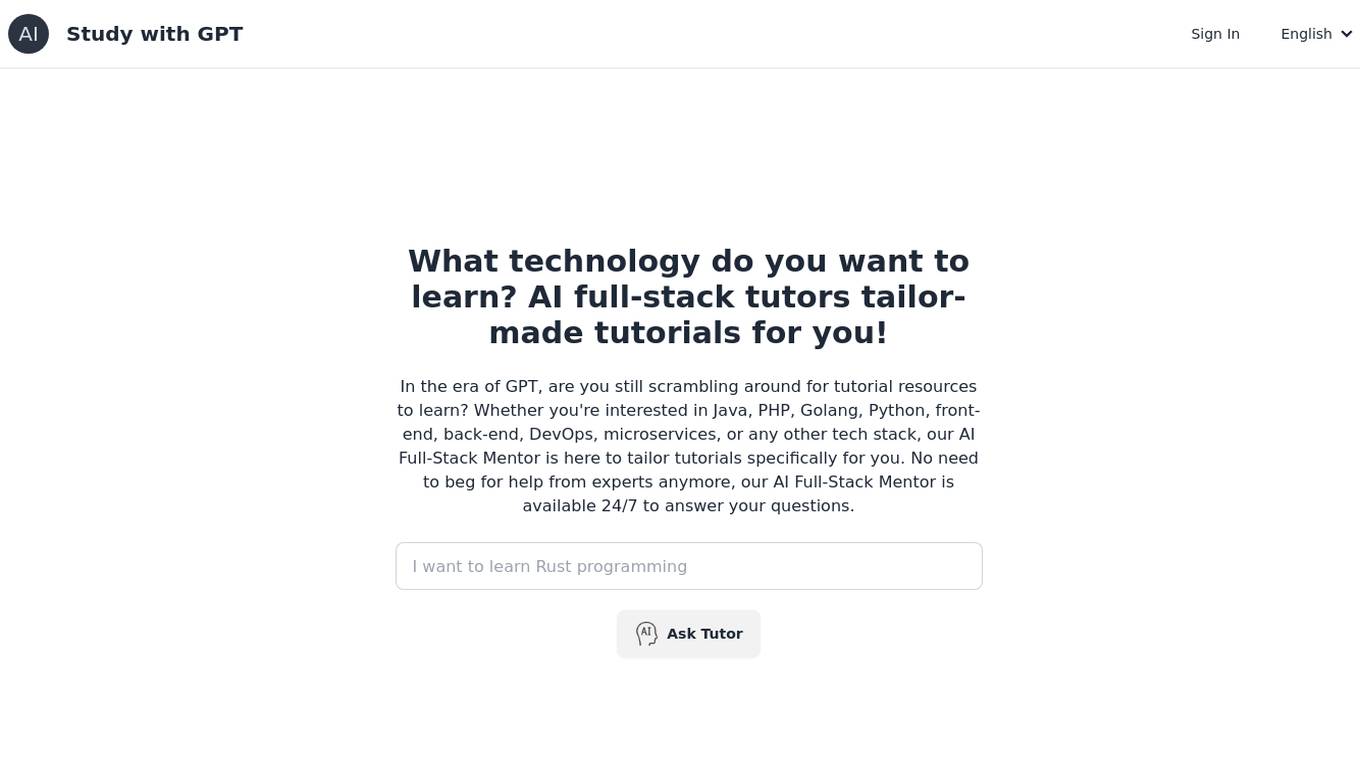
StudyWithGpt
StudyWithGpt.com is a GPT-powered full-stack learning hub that provides personalized AI tutorials for various tech stacks including Java, PHP, Golang, Python, front-end, back-end, DevOps, and microservices. The AI Full-Stack Mentor offers tailored tutorials based on the user's learning objectives, breaking down knowledge points and providing 24/7 assistance. Users can ask questions, receive tutorial outlines, and get help with tough problems from the AI tutor.
0 - Open Source Tools
9 - OpenAI Gpts
Golang Code Review and Example Buddy
Provides in-depth Golang code reviews, explanations, and fixes.
